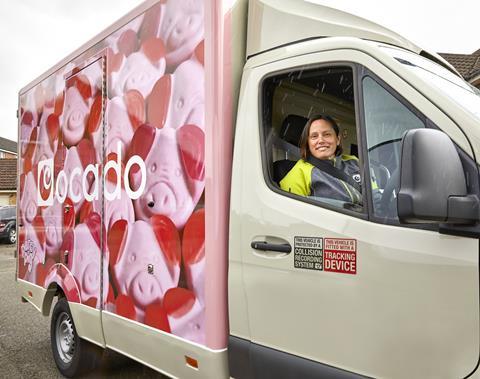Slowdown in sales growth is due to “cooler weather” and consumers’ “return to regular routines”, according to NIQ

Sales of food and groceries at UK supermarkets slowed in the month to 7 September as shoppers began to reduce their spending after the summer holidays.
According to retail analysts NielsenIQ (NIQ), total till sales growth fell to four per cent, down from 5.5 per cent in early August.
The slowdown is ikely due to “cooler weather” and a “return to regular routines for shoppers” after the summer break, NIQ said.
NIQ data also revealed that the online share of FMCG spend increased to 13 per cent, up from 12.5 per cent a year before.
Online FMCG sales grew by 6.1 per cent, ahead of in-store sales (+1.8 per cent), as shoppers found the channel more convenient for quick dinners as well as weekly shops.
Additionally, there was a boost in sales for fresh food, including produce (+8.1 per cent), and meat, fish and poultry (+5.4 per cent). Value sales for packaged grocery also increased by 3.9 per cent.
In terms of retailer performance in the 12 weeks to 7 September, Ocado (+15.4 per cent) remained the fastest-growing retailer, followed by M&S (+12.4 per cent).
Meanwhile, Morrisons increased spend per visit following increased More Card loyalty scheme offers. Meanwhile, Waitrose attracted more shoppers and visits compared to last year.
However, discounter market share (Aldi and Lidl) stabilised at 17.6 per cent and has now returned to the same level as in February 2023.
NIQ’s UK head of retailer and business insight, Mike Watkins, said: “September is closely tied to a change in how we shop following ‘back-to-school’, so retailers typically reinvigorate marketing efforts as customers refocus on new routines as we go from summer to autumn.
“With some 50 per cent of households saying they are moderately or severely impacted by the increases in cost of living, this means retailers will need to be laser-focused in offering products and promotions that inspire customers who are budget-conscious as part of the push for sales growth in Q4.”
Watkins explained: “Many households are now budgeting for Christmas and slowly stocking their cupboards to help spread the cost.
“While promotions are still key, assessing the impact of all media spend is more important as this helps retailers and brands get a better understanding of shopper behaviour and purchasing drivers.”



